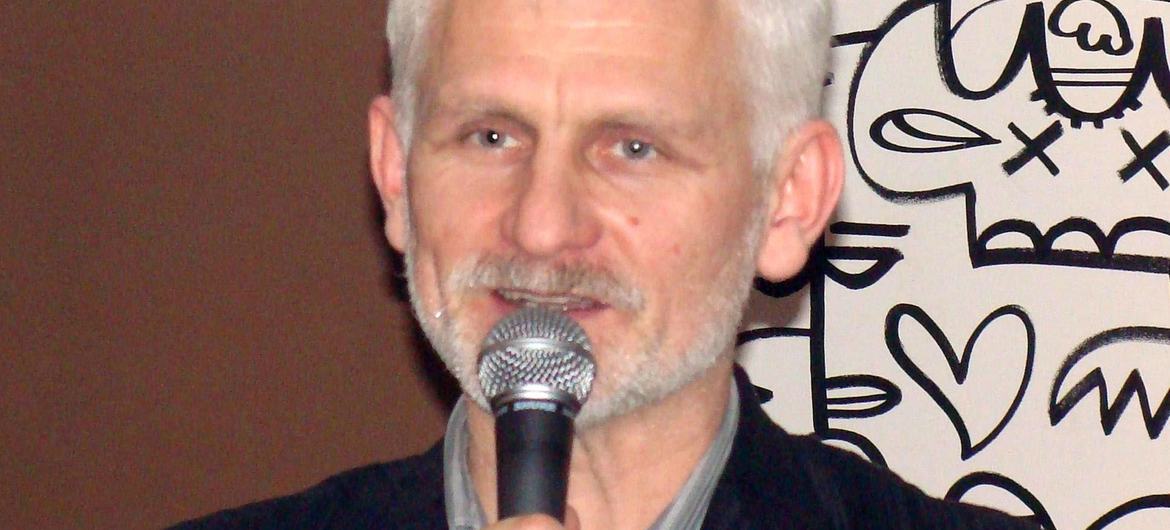
Belarus: Trial of Nobel laureate Ales Bialiatski ‘politically motivated’
Mr. Bialiatski, a veteran rights campaigner and founder of Viasna (or “spring”) civil society group, was arrested in July 2021 on tax evasion charges, along with two other activists, and reportedly held in dreadful conditions in a prison in Minsk. Their trial began on Thursday. […]
HQ Report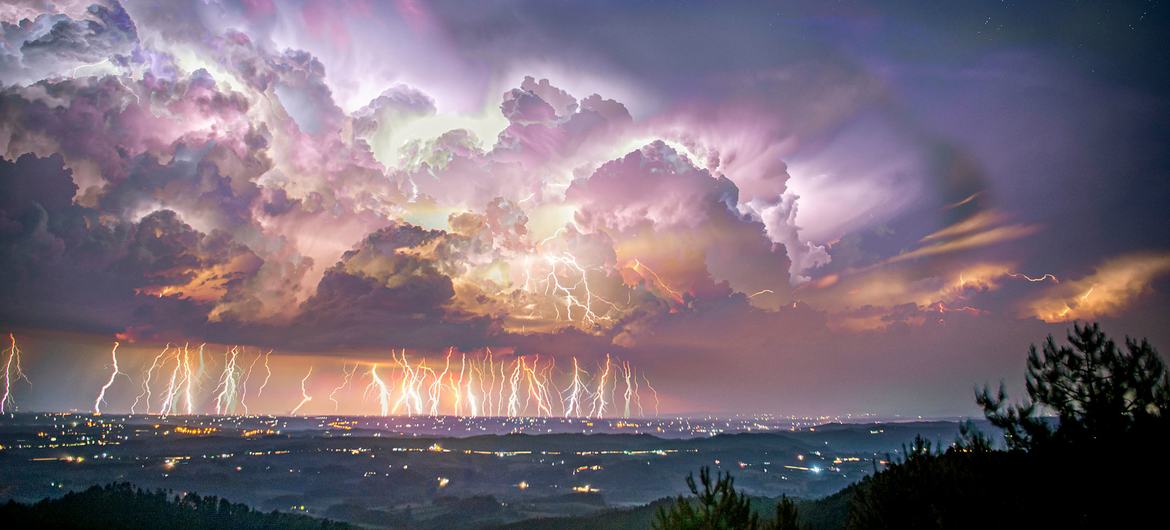
Europe: Warm start to 2023 breaks records and skiers’ hearts, says WMO
And as a growing number of European ski resorts at lower altitudes struggle to provide adequate snow cover for their early-season visitors, the WMO pointed to widely accepted peer-reviewed scientific data from the UN Intergovernmental Panel on Climate Change (IPCC) indicating that the frequency of […]
HQ Report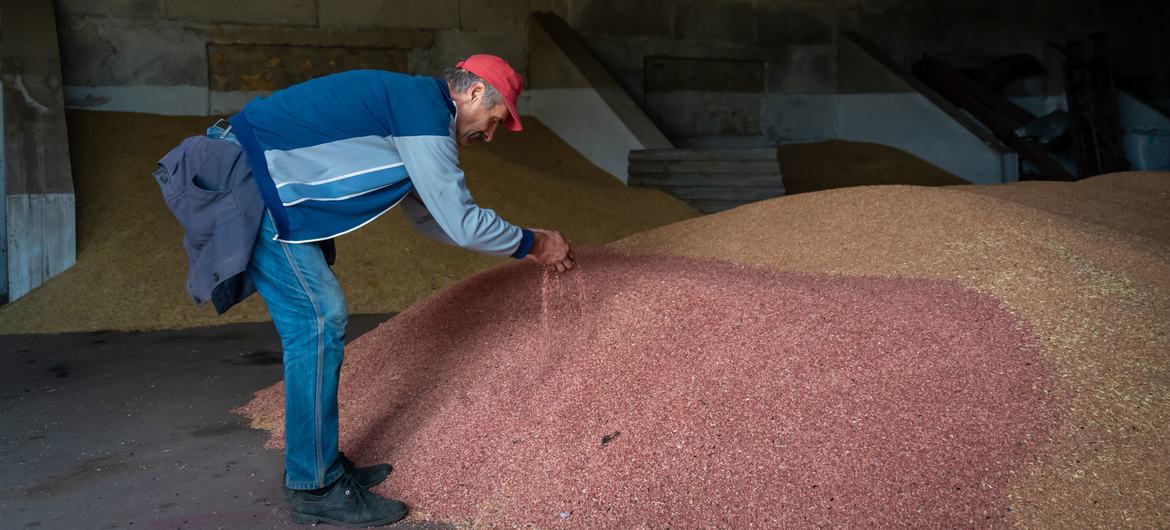
Ukraine: FAO and EU in $15.5 million bid to avert food crisis threat
With funding from the European Union, the project will help sustain agricultural production in Ukraine, after Russia’s full-scale invasion last February forced many rural producers to scale down or abandon their activities, amid the destruction of crops and farm equipment, and disruption to supply chains. […]
HQ Report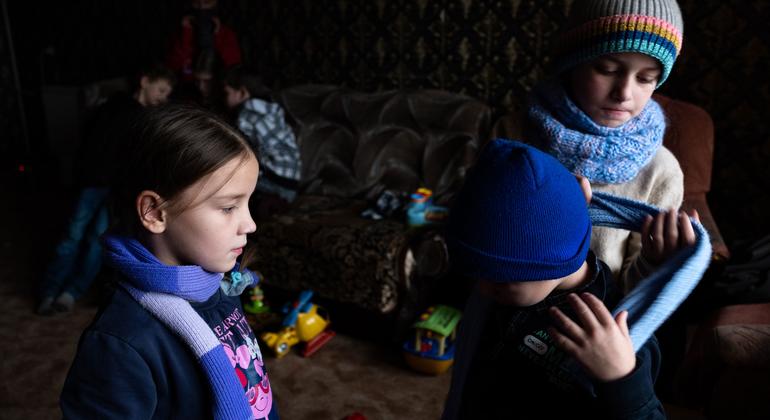

Belarus: Trial of Nobel laureate Ales Bialiatski ‘politically motivated’
Mr. Bialiatski, a veteran rights campaigner and founder of Viasna (or “spring”) civil society group, was arrested in July 2021 on tax evasion charges, along with two other activists, and reportedly held in dreadful conditions in a prison in Minsk. Their trial began on Thursday. […]
HQ Report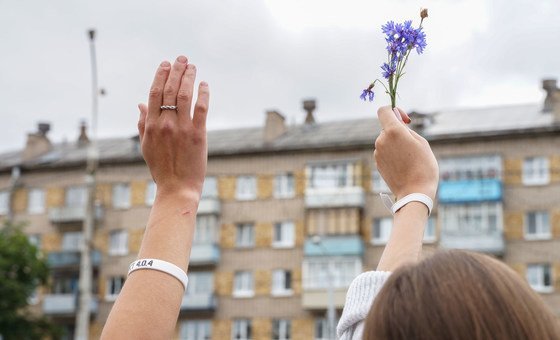
Mr. Bialiatski, a veteran rights campaigner and founder of Viasna (or “spring”) civil society group, was arrested in July 2021 on tax evasion charges, along with two other activists, and reportedly held in dreadful conditions in a prison in Minsk. Their trial began on Thursday.
“We are gravely concerned by the trial of Nobel Peace Prize laureate Ales Bialiatski which started in Belarus on Thursday. Bialiatski faces up to 12 years in jail,” said OHCHR spokesperson Jeremy Laurence.
Release appeal
“Two other representatives of his Viasna Human Rights Center are also facing prison sentences. We have serious concerns about the conduct of their trial”, he added. “We call for the charges against them to be dropped and their immediate release from detention.”
The appeal from the UN rights office comes amid increasing concerns about tightening legislation in Belarus that restricts civil and political rights, that followed violent crackdowns against hundreds of thousands of protesters who contested the result of presidential elections in August 2020.
In response, hundreds of thousands of Belarusians have reportedly left the country in the last two years, while “an unprecedented number are fleeing persecution and prospects for a safe return under the current leadership grow bleaker”, said Anaïs Marin, Special Rapporteur on the situation of human rights in Belarus, in an alert last year.
Strong defence
Speaking to journalists in Geneva, Mr. Laurence insisted that the UN rights office was following the case closely and remained in “constant engagement” with the Belarusian authorities.
“Suffice to say that we consider these to be arbitrary arrests – constitute arbitrary detention – and the charges are simply politically motivated,” he added.
In previous appeals for the release of Mr. Bialiatski, senior rights experts who report to the Human Rights Council described his arrest as “part of an unfolding policy to silence human rights defenders and eradicate the civic space in Belarus”.
Mr. Bialiatski had been carrying out “legitimate human rights work” when he was detained, the experts said, before reminding Belarusian authorities of their obligations to uphold human rights and the immediate release of all rights activists detained on politically motivated grounds.
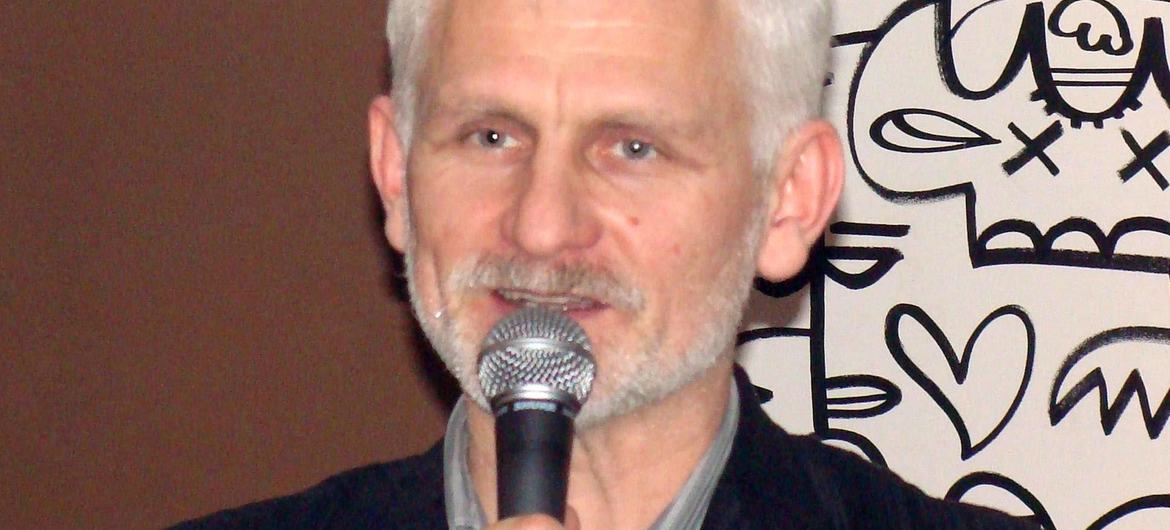
© Bladyniec
Ales Bialiatski, prominent Belarusian human rights activist and Nobel Peace Prize laureate. (file)

Europe: Warm start to 2023 breaks records and skiers’ hearts, says WMO
And as a growing number of European ski resorts at lower altitudes struggle to provide adequate snow cover for their early-season visitors, the WMO pointed to widely accepted peer-reviewed scientific data from the UN Intergovernmental Panel on Climate Change (IPCC) indicating that the frequency of […]
HQ Report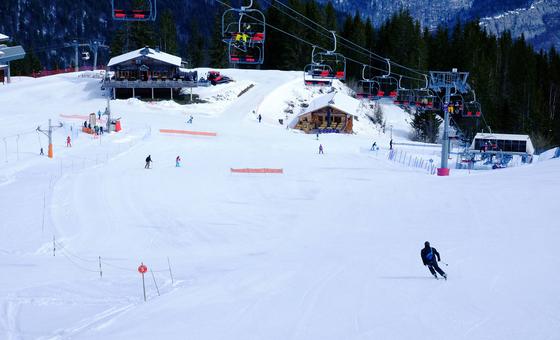
And as a growing number of European ski resorts at lower altitudes struggle to provide adequate snow cover for their early-season visitors, the WMO pointed to widely accepted peer-reviewed scientific data from the UN Intergovernmental Panel on Climate Change (IPCC) indicating that the frequency of cold spells and frost days “will decrease”.
“Strong declines in glaciers, permafrost, snow cover extent, and snow seasonal duration at high latitudes/altitudes are observed and will continue in a warming world,” the IPCC said.
According to the UN agency, New Year temperatures soared above 20 degrees Celsius (C) in many European countries, even in Central Europe.
National and many local temperature records for December and January were also broken in several countries, from southern Spain to eastern and northern parts of Europe, WMO said.
Temperatures lift off in Spain
At Spain’s Bilbao airport, a reading of 25.1C on 1 January smashed the previous all-time record established 12 months earlier, by 0.7C.
And in the eastern French city of Besançon, which is usually chilly at this time of year, temperatures hit a new all-time high of 18.6 degrees on New Year’s Day, 1.8C above the previous record, dating back to January 1918.
In the German city of Dresden, the 1961 New Year’s Eve record of 17.7C was left trailing by the 19.4C reading taken on 31 December 2022, just as Poland’s Warsaw residents saw in the new year with temperatures peaking at 18.9C, a staggering 5.1C higher than the previous all-time record for January, from 1993.
Further north, in Denmark’s Lolland island, 2023 started with a new high of 12.6C, overtaking the 12.4C record set in 2005.
Highs and lows
WMO attributed the warm spell in Europe to a high-pressure zone over the Mediterranean region which encountered an Atlantic low-pressure system.
Their interaction “induced a strong south-west flux that brought warm air from north-western Africa to middle latitudes”, the UN agency explained, adding that this hotter-than-normal air “was further warmed when passing the North Atlantic, due to a higher-than-normal sea surface temperature”.
Highlighting the influence of warmer sea waters on weather patterns, the WMO noted that in the eastern North Atlantic, sea surface temperature was 1C to 2C higher than normal, and “near the coasts of Iberia, even more”.
“All this caused record-breaking heat in several European countries on New Year’s Eve and New Year’s Day,” WMO concluded.
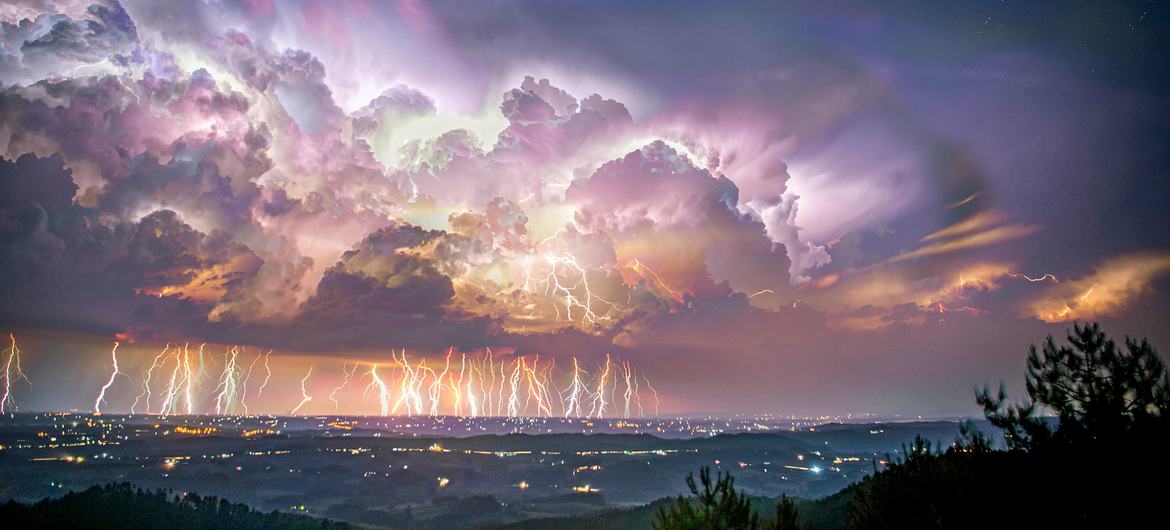
© WMO/Bosko Hrgic
In recent years, Bosnia and Herzegovina in Eastern Europe, has been impacted by climate change-related extreme weather, from intense rainfall to heat waves.
Sign of the times
The weather extremes experienced in Europe are projected to carry on increasing, the WMO warned, as it referenced recent analysis published with “high confidence” by the influential UN Intergovernmental Panel on Climate Change (IPCC). “Regardless of future levels of global warming, temperatures will rise in all European areas at a rate exceeding global mean temperature changes, similar to past observations,” the IPCC said.
According to the IPCC’s regional fact sheet for Europe, “the frequency and intensity of hot extremes, including marine heatwaves, have increased in recent decades and are projected to keep increasing regardless of the greenhouse gas emissions scenario”.
The panel’s experts further warned that “critical thresholds” for the environment and humans “are projected to be exceeded for global warming of 2C and higher”.

Ukraine: FAO and EU in $15.5 million bid to avert food crisis threat
With funding from the European Union, the project will help sustain agricultural production in Ukraine, after Russia’s full-scale invasion last February forced many rural producers to scale down or abandon their activities, amid the destruction of crops and farm equipment, and disruption to supply chains. […]
HQ Report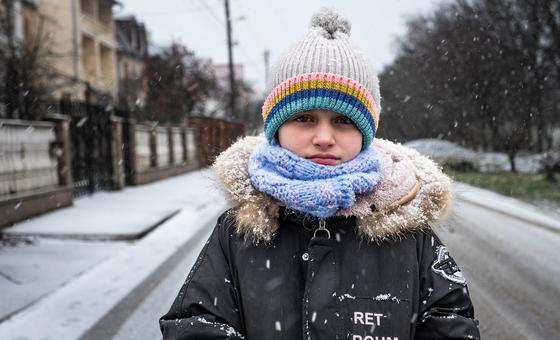
With funding from the European Union, the project will help sustain agricultural production in Ukraine, after Russia’s full-scale invasion last February forced many rural producers to scale down or abandon their activities, amid the destruction of crops and farm equipment, and disruption to supply chains.
Some 13 million people living in rural areas rely on Ukraine’s farming sector, according to FAO.
“The testimonies of the individuals and families who I met during my visits to the newly accessible areas, confirm the urgent need for immediate support towards restoring their household capacities and avoiding dependence on humanitarian assistance,” said Pierre Vauthier, head of FAO’s Ukraine country office.
Seeds of insecurity
Local and displaced populations in western Ukraine are also among those who need help in the short term, amid rising food insecurity and as people exhaust their savings, FAO said.
The UN agency noted that in a recent nationwide assessment on the impact of the war, one in four of the 5,200 respondents either reduced or halted agricultural production as a direct result of the relentless fighting.
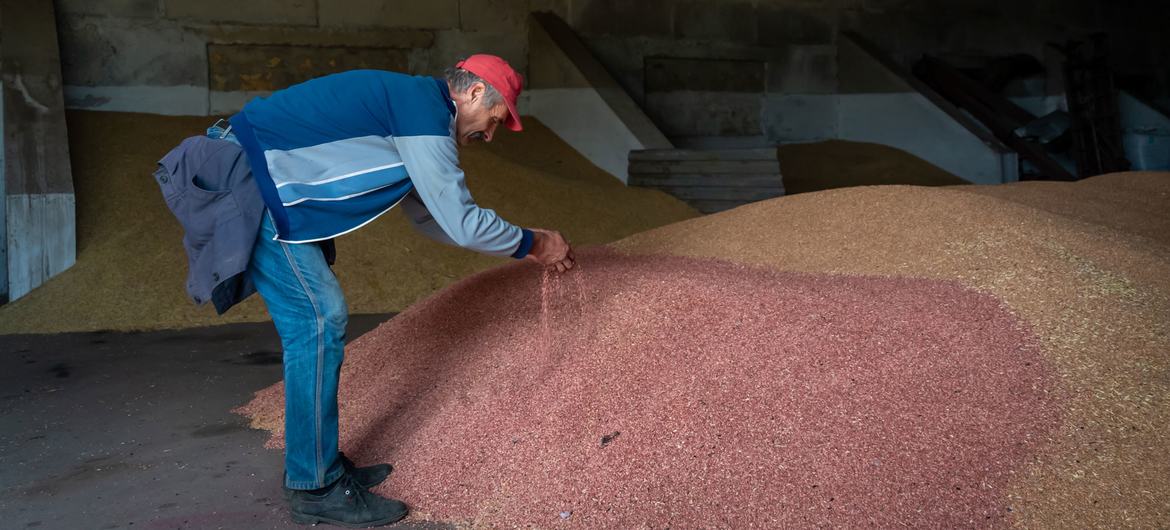
© OCHA/Matteo Minasi
Yuri is a farm worker in Baranove, Odeska oblast. Since the beginning of the war in February, the entire agriculture sector in Ukraine has suffered from limited options to export produce.
FAO explained that as the conflict continues, a large number of households, family farms, individual producers and others, have found it increasingly difficult to continue operating.
“It is critical to protect those households from the further deterioration of their productive capacities, which are the foundations of their resilience,” the agency said.
Starting from March 2023, grants of $1,000-$25,000, will be available to support production in the regions of Lviv, Zakarpatska, Ivano-Frankivska and parts of Chernivetska.
Beneficiaries will be required to make a matching contribution in order to receive the financial aid, which covers sectors including aquaculture, sheep farming and winemaking.
Sustaining growth
“The project aims to provide timely support to agricultural producers and small-scale agricultural enterprises with urgently needed access to finance, technical and business development advice and market intelligence,” said Hanna Antonyuk, Project Manager at FAO Ukraine.
“During wartime, these investments are necessary to secure the operations of agricultural producers, to support their adaptation to the evolving environment and to lay the foundations for sustainable growth.”
Major challenges expected in the next few months in crop and livestock farming include low sale prices at market, a lack of fertilizers and pesticides and shortages of fuel or electricity to power agricultural equipment.
The EU-funded project already provided emergency agricultural support between March and May last year. More than 6,000 households benefited from agricultural inputs, cash, vegetable seeds and seed potatoes to continue food production for household consumption, FAO reported.
One of the project’s aims is to help preserve a unique national collection of plant genetic resources, which FAO describes as being globally significant in terms of its volume and diversity of genetic material.

Ukraine: ‘Multiple civilian causalities’ as new year dawns
Citing UN humanitarian colleagues, he informed the media at the regular daily press briefing that intensified violence in different regions of the war-torn country caused “multiple civilian casualties”, which included children and journalists. “Ukrainian authorities reported more than 50 civilian casualties on December 31st alone”, […]
HQ Report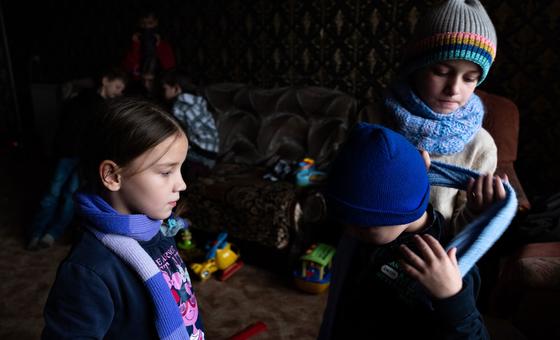
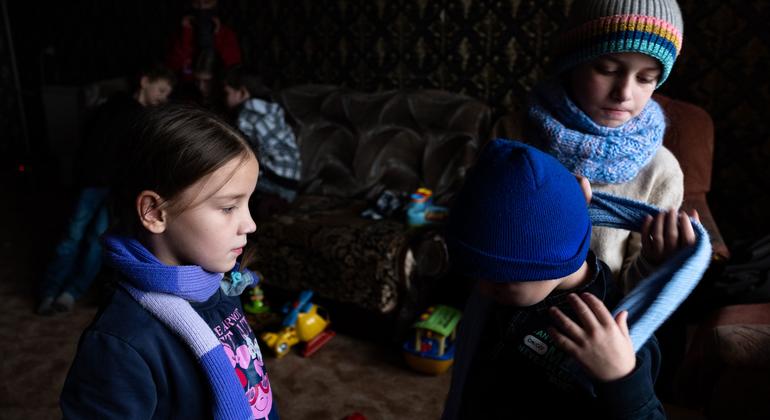
Citing UN humanitarian colleagues, he informed the media at the regular daily press briefing that intensified violence in different regions of the war-torn country caused “multiple civilian casualties”, which included children and journalists.
“Ukrainian authorities reported more than 50 civilian casualties on December 31st alone”, said Mr. Haq.
Mounting casualties
The latest attacks on the capital Kyiv, damaged a hotel, residential homes, and several education facilities, including a university.
And on 31 December, during hostilities in the Kherson region, two children were injured – one of them a 13-year-old boy who was evacuated to the children’s hospital in Kherson, which itself was shelled in the early hours of New Year’s Day, said Mr. Haq, citing the regional governor.
Moreover, intensive fighting also continues in eastern Donetsk and the Luhansk region, with civilian casualties and infrastructure damage reported “on both sides of the front line.”
Aid continuing
“Despite continued attacks we, along with our humanitarian partners, continue to deliver support to the people in need in the most impacted communities”, said the UN Deputy Spokesperson.
He went on to outline some of the life-saving assistance being delivered by the Organization as the fighting continues.
“On December 28, an inter-agency convoy delivered food, water, blankets, emergency shelter kits and other supplies from the International Organization for Migration (IOM), the UN refugee agency (UNHCR), UNICEF (UN Children’s Fund) and the World Food Programme (WHO) to the front-line towns of Lyman and Sviatohirsk in Donetska oblast”.
Both communities have been exposed to heavy fighting, which has destroyed houses, demolished critical infrastructure, and decimated access to basic services.
“The people who still live in these areas are mostly the elderly and people with limited mobility.”
Dozens of Russian soldiers reportedly killed
According to news reports, a missile strike late on New Year’s Eve in occupied eastern Ukraine produced the highest death toll acknowledged by Russia since its forces invaded the country on 24 February.
Ukrainian military sources reported that as many as 400 people were killed or wounded at Makiivka, but there has been no independent verification on casualties.
The Russian defence ministry acknowledged on Monday that 63 soldiers were killed in the attack when HIMARS rockets hit and reportedly destroyed the vocational college, housing conscripts.
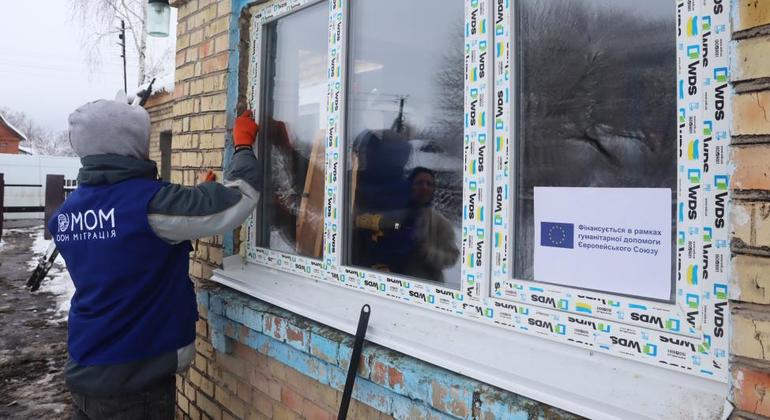
UN migration agency to support 700,000 Ukrainians through ‘most challenging’ winter
Humanitarian funding from the European Union (EU), is enabling the International Organization for Migration (IOM) to support over 700,000 Ukrainians with multi-sectoral assistance this winter, which is set to be “the most challenging season yet for the country”. “Displaced and war-affected people will face new and growing challenges […]
HQ Report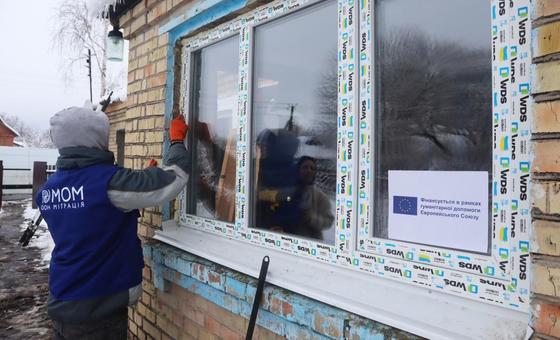
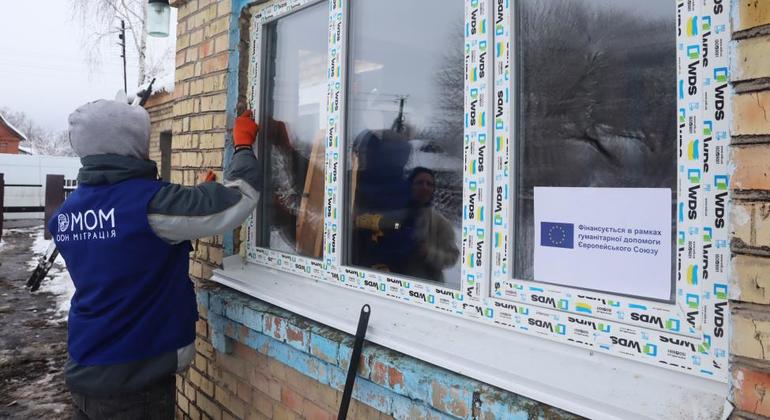
Humanitarian funding from the European Union (EU), is enabling the International Organization for Migration (IOM) to support over 700,000 Ukrainians with multi-sectoral assistance this winter, which is set to be “the most challenging season yet for the country”.
“Displaced and war-affected people will face new and growing challenges as the war drags on and winter grips Ukraine”, said Anh Nguyen, IOM’s mission chief in the country.
Ramping up assistance
IOM’s winterization support includes refurbishing collective centres hosting displaced people; improving water supply, wastewater and heating systems; repairing damaged homes; and distributing high-thermal blankets, bedding kits, mattresses, and hygiene items.
Moreover, solid fuel and cash assistance are also being provided to help people sustain themselves with flexible means throughout the bitter cold season.
IOM will also use EU funding to stock critical items, ensuring that war-affected people in Ukraine continue to be reached, and support its partners responding to the urgent needs on the ground.
“Our key priority is to support warm, safe, and dignified conditions to help people get through the next few months”, explained Mr. Nguyen.
‘Pressing needs’
Moving forward, mobile teams will conduct repairs in 375 collective sites and social institutions by improving insulation, fixing leaking roofs, replacing broken windows, and installing additional showers.
IOM will refurbish 5,800 private homes and distribute emergency shelter kits for people to make necessary improvements themselves.
The UN agency will also support municipalities in areas recently retaken by the Government of Ukraine with construction materials and generators.
“As attacks continue leaving millions without reliable access to electricity, heating, and water, our humanitarian partners like IOM continue working to meet the most pressing needs,” said Claudia Amaral, Head of EU Humanitarian Aid in Ukraine.
18 million in need
Around 18 million Ukrainians, or 40 per cent of the country’s population, require humanitarian assistance, according to UN Office for Coordination of Humanitarian Affairs (OCHA) estimates.
And continuous attacks on Ukraine’s critical infrastructure have served to increase the war’s devastating impact for the most affected people.
IOM’s latest survey shows that despite multiple incursions on the country’s power supply and heating infrastructure, Ukrainians plan to spend the winter at their current locations.
Only seven per cent of nationwide respondents surveyed said they are actively considering leaving.
Meanwhile, private resources for survival are becoming scarce, as 43 per cent of all families in Ukraine have completely exhausted their savings.
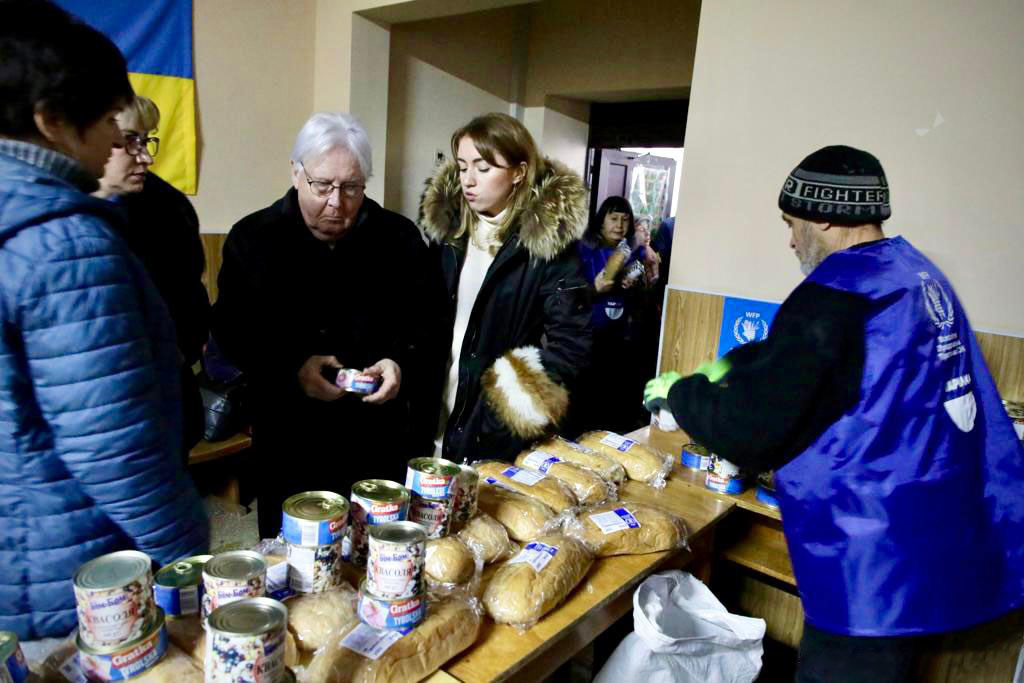
UN emergency relief chief ends Ukraine visit, pledging solidarity
Speaking in Kyiv, at the end of a four-day official visit, Martin Griffiths described the deadly threat from daily artillery attacks on the southern port city of Kherson. Today, more than 18 million people in Ukraine need humanitarian aid, according to UN humanitarians. Some 7.83 […]
HQ Report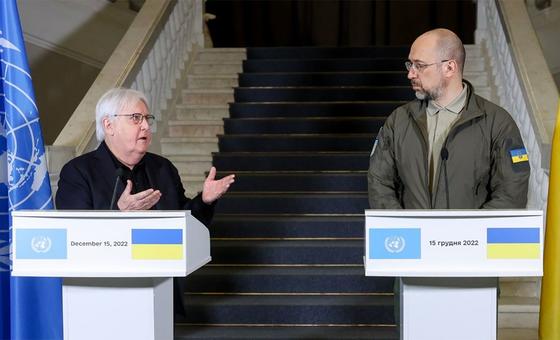
Speaking in Kyiv, at the end of a four-day official visit, Martin Griffiths described the deadly threat from daily artillery attacks on the southern port city of Kherson.
Today, more than 18 million people in Ukraine need humanitarian aid, according to UN humanitarians. Some 7.83 million have fled the country and 6.5 million are internally displaced.
Mykolaiv suffering
Mr. Griffiths explained that in the nearby city of Mykolaiv, he had spoken to families sheltering in a bunker, after being recently displaced from villages destroyed by shelling.
Despite the destruction, these people “went back daily to try to restart their lives”, he said.
But before anyone can go home, vast areas will require demining, Mr. Griffiths continued, recalling the Ukrainian Prime Minister’s assessment that the country was probably the most mine-polluted nation in the world.
“You can’t get the country back into production without de-mining,” Mr. Griffiths said, noting that about half a million hectares of agricultural land in Kherson alone were affected. “So, the urgent international priority to the mines is one that we will also do what we can.”
Power play
A reliable electricity supply is even more important to Ukraine’s recovery, Mr. Griffiths said, describing it as the main requirement across the country.
“This issue is of central importance precisely because civilians suffer from the lack of electricity, civilians who should not suffer under international law in a conflict,” he said.
All those caught up in the war in Ukraine wanted their children to go back to school and other signs of normality, Mr. Griffiths insisted. The UN would do what it could to make that happen, he added.
“Even now, even in places like Kherson, where the war is still going on with those people on the right bank still being shelled every day – restarting, jumpstarting the economy, anything that we in the UN can do to support that effort – we’d happily do so.”
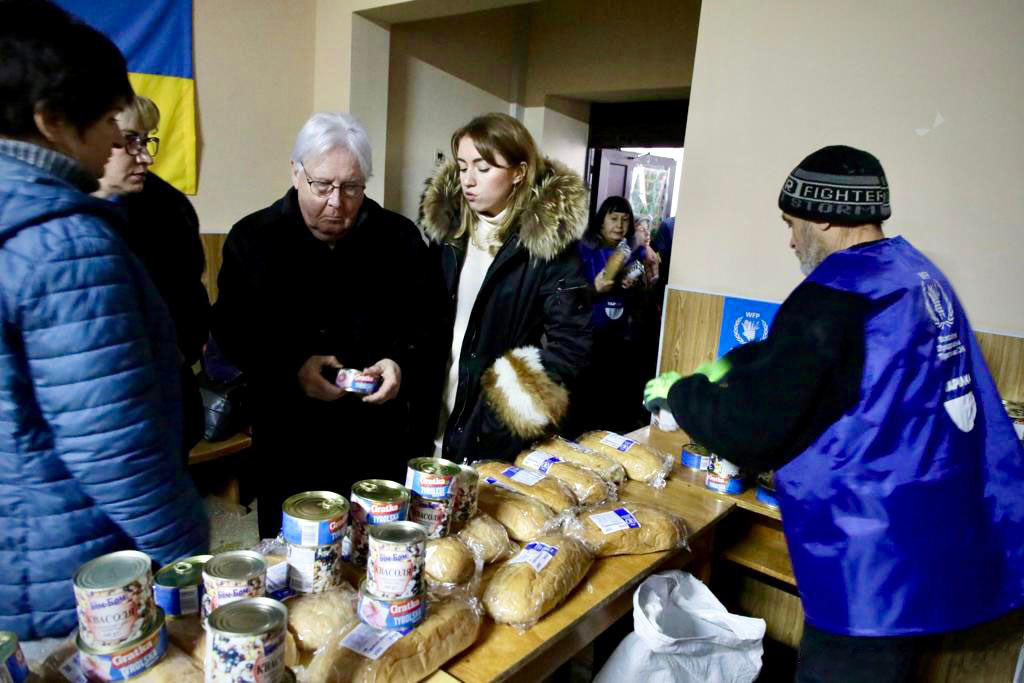
© UNOCHA/Saviano Abreu
Under Secretary-General for Humanitarian Affairs and Emergency Relief Coordinator, Martin Griffiths, visits Kherson on his four-day visit to Ukraine.
Probe latest
In Geneva, meanwhile, grim details about the killing of civilians by Russian forces in Ukraine were shared at the Human Rights Council on Thursday.
At the request of the Council, UN High Commissioner for Human Rights Volker Türk provided information gathered by his Office on “summary executions and attacks on individual civilians” in more than 100 villages and towns in Kyiv, Chernihiv and Sumy regions, between 24 February and 6 April.
The research took place during field visits, after Russian troops had retreated. Witnesses and survivors provided first-hand reports, which were complemented by other sources, allowing the Office of the High Commissioner to document the killings of 441 civilians: 341 men, 72 women, 20 boys, and eight girls.
“In some cases, Russian soldiers executed civilians in makeshift places of detention,” the High Commissioner said. “Others were summarily executed on the spot following security checks – in their houses, yards, and doorways. Even where the victim had shown clearly that they were not a threat, for example, by holding their hands in the air.”
Mr. Türk, who noted that investigators were also trying to corroborate an additional 198 alleged killings, added that there were “strong indications” that the summary executions described in his Office’s report may constitute the war crime of wilful killing.
In his address to the Council, the UN rights chief insisted that armoured vehicles and tanks belonging to Russian forces “had fired at residential buildings, killing civilians in their homes. Civilians were struck on roads while moving within or between settlements or while commuting to work.”
Bucha was worst hit, Mr. Türk said, noting that 73 civilians had been killed in the town alone (54 men, 16 women, two boys and one girl) between 4 and 30 March.
“Over a 150-metre stretch of Yablunska Street, 14 civilians (10 men, three women and one girl) were shot dead and left where they fell,” the High Commissioner said. “My Office is in the process of corroborating 105 additional alleged killings of civilians in Bucha.”

Rights experts urge UK to redraft controversial Northern Ireland bill
The Northern Ireland Troubles (Legacy and Reconciliation) Bill was introduced in Parliament in May and passed a second reading in the House of Lords last month. Further review is set to take place in January. Little access to remedy The UN experts are concerned […]
HQ Report

The Northern Ireland Troubles (Legacy and Reconciliation) Bill was introduced in Parliament in May and passed a second reading in the House of Lords last month.
Further review is set to take place in January.
Little access to remedy
The UN experts are concerned that the Bill bans, and in some cases unduly restricts, conflict-related civil actions, coronial inquests, and police complaints into deaths, torture and other harmful conduct.
Instead, reviews will be undertaken by an Independent Commission for Reconciliation and Information Recovery (ICRIR).
“The Bill will substantially hamper victims’ access to remedy before criminal and civil courts for the serious human rights violations and abuses suffered. It would further preclude information recovery and reparations for those victims who have for decades struggled to get justice and redress for the harm endured,” the experts said in a statement.
About the Troubles
More than 3,500 people were killed, and thousands more injured, during the Troubles, which began in the late 1960s.
Fighting between British forces and the Irish Republican Army (IRA), and other paramilitary groups across the Catholic-Protestant sectarian divide, effectively ended with the signing of the Good Friday Agreement in April 1998, led by the Government of Tony Blair and political leaders from all sides – including the Republic of Ireland.
‘De-facto amnesty’
The experts pointed out that the Troubles Bill offers conditional immunity to people participating in the ICRIR, including those accused of committing grave human rights violations.
“The immunity scheme envisaged in the Bill, particularly in view of the low threshold required for granting immunity and the lack of review mechanisms, would be tantamount to a de-facto amnesty scheme,” they said.
Furthermore, the Bill “appears to conflate reconciliation with impunity, as well as oppose legal accountability, an essential pillar of transitional justice processes, to truth, information recovery and reconciliation.”
Redraft the Bill
The essential components of truth, justice, reparation, memorialisation and guarantees of non-recurrence, “cannot be traded off against one another in a ‘pick and choose’ exercise”, said the experts.
They urged the UK authorities to consider withdrawing the Bill and redrafting it to fully comply with international and regional human rights standards, in effective consultation with victims and civil society
If approved, the Bill would thwart victims’ right to truth and justice, undermine the rule of law, and the United Kingdom would be in flagrant contravention of its international human rights obligations, they said.
Moreover, it would breach the Good Friday Agreement, which could undermine the Troubles-related peace process and set a damaging and concerning example for other countries emerging from conflict.
Role of UN experts
The UN experts who issued the statement are Fabián Salvioli, Special Rapporteur on the promotion of truth, justice, reparation and guarantees of non-recurrence, and Mr. Morris Tidball-Binz, Special Rapporteur on extrajudicial, summary or arbitrary executions.
They were appointed by the UN Human Rights Council, which is based in Geneva.
The experts are part of the Council’s Special Procedures mechanism to monitor and report on specific human rights situations or thematic issues.
They are not UN staff and are not paid for their work.
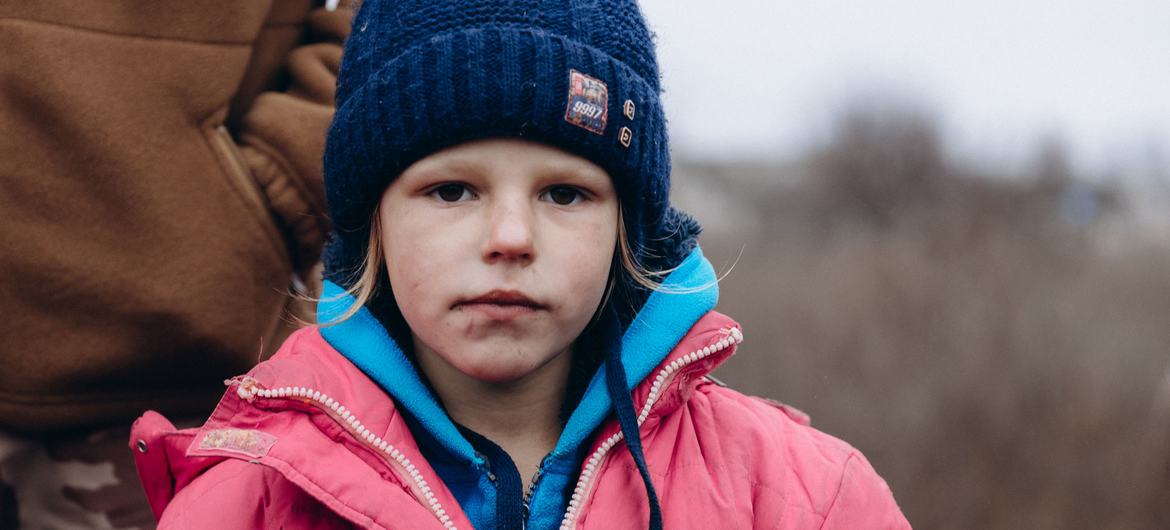
Ukraine: Winter’s downward spiral documented by UN agencies
The findings revealed that one in every four of the 5,200 respondents had reduced or stopped agricultural production because of the conflict. “The report indicates that 25 per cent of the Ukrainian rural population involved in agriculture stopped their activities or reduced their output due […]
HQ Report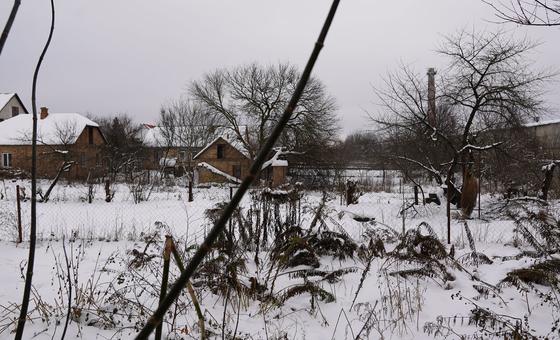
The findings revealed that one in every four of the 5,200 respondents had reduced or stopped agricultural production because of the conflict.
“The report indicates that 25 per cent of the Ukrainian rural population involved in agriculture stopped their activities or reduced their output due to the war”, said Pierre Vauthier, head of FAO’s Ukraine Country Office.
“The situation is much worse in the most agriculture-dependent regions of Ukraine, where over 40 per cent of rural families are affected”.
‘Source of livelihoods’
Rural households were interviewed to enhance understanding of the current agriculture and livelihoods situation and needs, particularly in view of the upcoming winter season.
The impact of the war on the broader production system, characterized by disruptions to value and supply chains, and price volatility, has had repercussions on the rural population, underlining their interdependence with the country’s agricultural economy.
“Ukraine’s agriculture sector is an important source of livelihoods for the roughly 13 million Ukrainians living in rural areas. While around two-thirds of agricultural production is made by enterprises, rural households produce around 32 per cent”, Mr. Vauthier reminded.
Pivotal role
While the effects of the war are more prominent along the frontline, the rest of the country also feels the ramifications.
And as the war persists, the current situation is likely to deteriorate further.
Compounded by the winter season and the potential for further internal displacements to rural areas, the coping capacities of the rural population are likely to become progressively strained.
It is critical to protect those households from the further deterioration of their productive capacities, which are the foundations of their resilience.
“The report focuses on those households mostly involved in backyard farming and small-scale agricultural production”, said Lavinia Antonaci, coordinator of the assessment.
“Although not officially defined as farmers, they play a pivotal role in ensuring the food security, incomes and livelihoods of rural populations by providing for their own food consumption as well as selling products locally, thus contributing to local supply chains”.
Alleviating effects of war
The report notes that support to rural household food production is a means to mitigate the negative impacts of the war on their food security and livelihoods, and will also improve and maintain the hosting capacities of rural households.
Revitalizing and sustaining the small-scale agriculture sector will strengthen and secure the contribution of rural households to the broader agricultural system and enhance the benefits they can access in return.
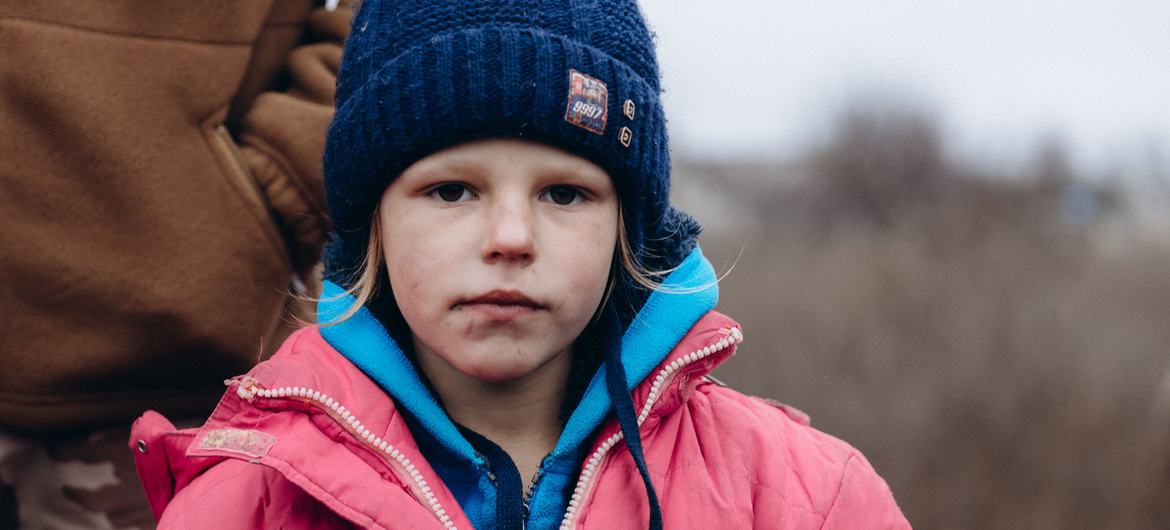
© UNICEF/Tetyana Bundzylo
A six-year-old girl waits at a checkpoint in the newly liberated city of Lyman, in the Donetsk region of Ukraine, to receive lifesaving supplies, including water and food.
In addition, it is critical to monitor the constantly changing situation and to continue providing complementary assessments and integrated analyses on the impact of the war on Ukraine’s agricultural system to better inform short-, medium- and long-term actions.
Determined to stay
Meanwhile, as temperatures slide down to -10⁰ C and attacks continue on power supply and heating systems, data collected by the International Organization for Migration (IOM) shows that only seven per cent of respondents nationwide are actively considering leaving their location.
Even in the event of prolonged cuts to all key utilities with no repair timeline, two out of three say that they would remain.
At the same time, private resources for survival are becoming scarce, as 43 per cent of all Ukrainian households have exhausted their savings.
To reduce costs, 63 per cent of respondents reported that they are rationing their gas, electricity, and solid fuel.
“Nearly 18 million people – 40 per cent of Ukraine’s population – need urgent humanitarian aid,” said IOM Chief of Mission in Ukraine, Anh Nguyen.
“We must support them during winter, particularly those with no access to shelter or heat. IOM urges stakeholders to scale up their efforts as the needs keep growing with each passing day.”
Live from Kyiv
Meanwhile in Kyiv, UN Emergency Relief Coordinator Martin Griffiths discussed with humanitarians, how to support people and challenges facing aid workers in non-Government-controlled areas and met with Government officials and diplomats.
He noted that what he saw after attacks in Kherson and Kyiv was just a fraction of what the Ukrainian people are experiencing and highlighted the heavy toll of the war on civilians, which has left more than 18 million people in need of humanitarian assistance.
Children in war
For its part, the UN Children’s Fund (UNICEF) warned that a bleak winter will likely worsen the psychosocial situation for children, who are already facing a looming mental health crisis, with an estimated 1.5 million of them at risk of depression, anxiety, post-traumatic stress disorder and other mental conditions.
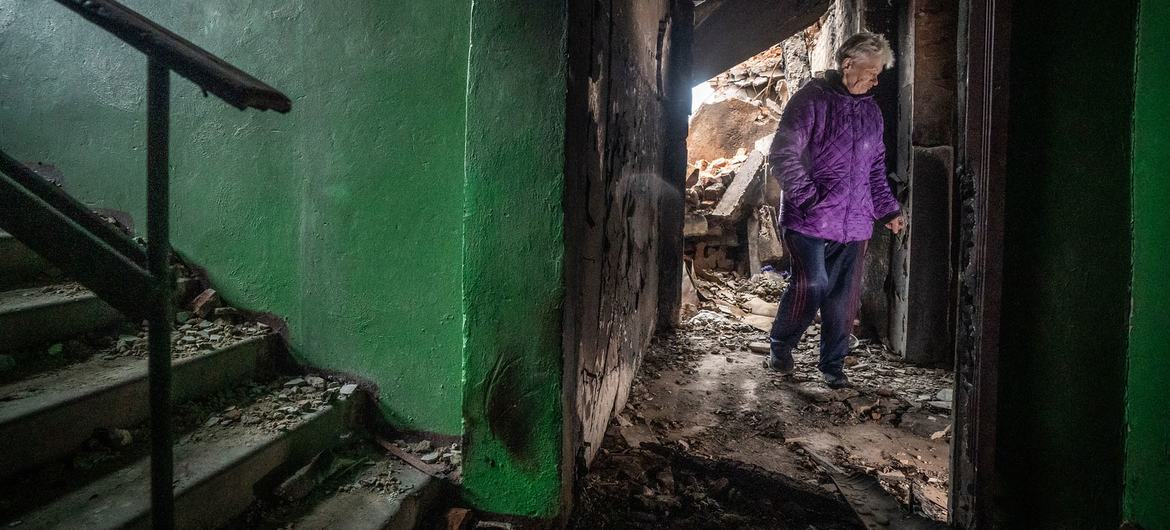
Ukraine: Countries must support resilient recovery to prevent ‘cascade’ of poverty, hunger
António Guterres was addressing a one-day international summit in Paris, with leaders from around 50 nations reportedly in attendance, where agreement was reached to deliver some €1 billion in new financing to help repair the energy grid, water systems and health facilities, damaged by Russian […]
HQ Report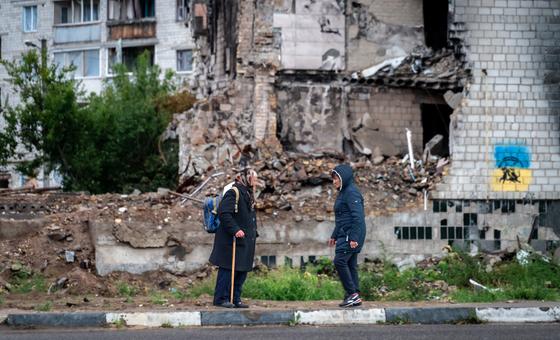
António Guterres was addressing a one-day international summit in Paris, with leaders from around 50 nations reportedly in attendance, where agreement was reached to deliver some €1 billion in new financing to help repair the energy grid, water systems and health facilities, damaged by Russian missile attacks.
The Secretary-General said that around 10 million consumers were without electricity with millions cut off from essential water and heat, as winter temperatures plummet.
Direct support
“Over the past few months, humanitarians have provided more than 630,000 civilians with direct winter assistance, and 400 generators have been distributed to critical facilities”, he added.
“But all of this is a drop in the bucket. The scale of destruction across the country requires strong support from the international community – going far beyond humanitarian aid.
“We must invest in Ukraine’s resilient recovery and reconstruction to prevent the current crisis from cascading into poverty, hunger and destitution for millions of Ukrainians.”
Health service under fire: WHO
Earlier, the UN health agency, WHO, issued a fresh warning about the physical and mental toll on those living with the conflict.
The agency confirmed that health services in Ukraine have continued to come under fire, with at least 715 confirmed attacks on medical facilities and workers, since the Russian invasion on 24 February.
In Geneva, WHO spokesperson Dr. Margaret Harris also appealed for access to people with HIV in dangerous or inaccessible areas in the east of Ukraine:
“We’re very concerned about the large numbers of people with HIV; people in the Donetesk region particularly, who’ve not been able to receive their medication. We really need humanitarian corridors, we really need the opportunity, the chance to help the many, many people in need.”
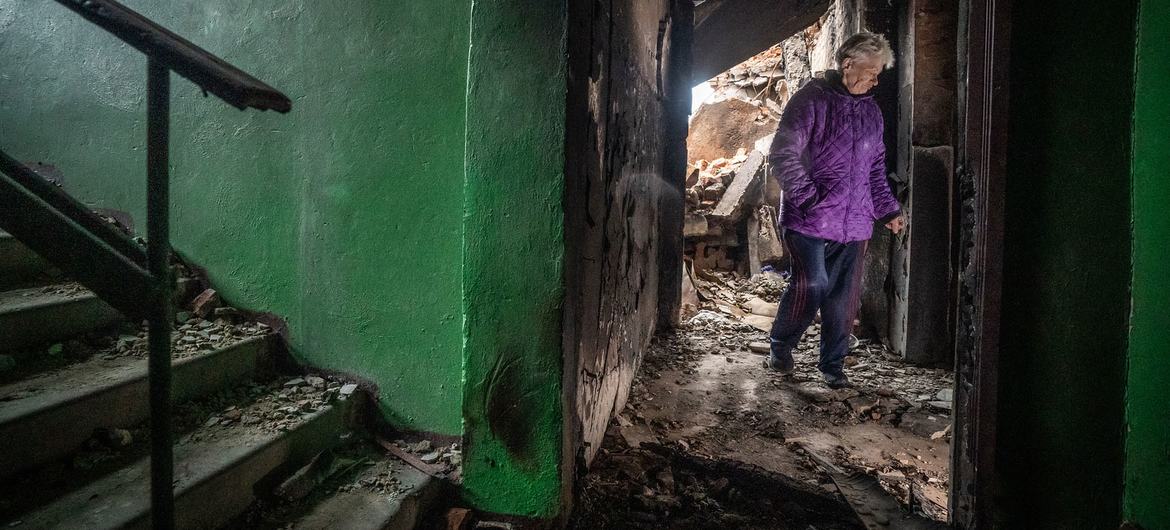
© UNOCHA/Matteo Minasi
A woman looks at the debris littering her apartment in Kharkivska Oblast, Ukraine.
Respiratory disease surge
Dr. Harris explained that repeated attacks on power infrastructure have led to daily power cuts for many, and left people little choice but to burn what they can find to stay warm, often in cramped and unventilated spaces.
These fires are particularly harmful to the lungs of children and old people she said, adding that there has also been a “large rise” in respiratory illnesses such as bronchiolitis and bronchitis.
A “big flu surge” is also underway, and there are concerns about diptheria and measles breaking out in large unvaccinated populations, the WHO spokesperson said.
UN relief chief in Kherson
The UN Emergency Relief Coordinator, Martin Griffiths, is on the ground for the second day of his visit to the country spending Tuesday in Kherson, one month after Government troops regained control of Ukraine’s second largest city.
UN Spokesperson Stéphane Dujarric, told correspondents in New York that in the past couple of days, “many homes and other civilian infrastructure, including a school and a medical facility, were damaged by shelling, according to the local authorities.”
In the past month, humanitarian convoys have been bringing water, food, medicines, blankets and other essential items for Kherson’s civilian population, including generators for hospitals and schools so they can continue operating.
“Mr. Griffiths visited one of 22 resilience points, which are places for people to warm up, when the energy crisis leaves them with no electricity and no heating at home”, said Mr. Dujarric.
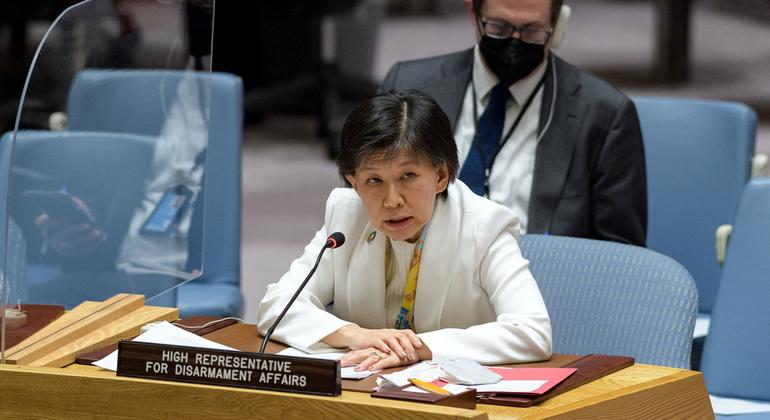
Ukraine war: Attacks against civilians and infrastructure must stop, disarmament chief tells Security Council
Briefing reportedly at the request of Russia on “supplies of lethal weapons to Ukraine and their consequences”, Izumi Nakamitsu reminded ambassadors that she had already addressed the issue in September. Risk of diversion The UN Disarmament Affairs (UNODA) chief repeated what she had said then, that […]
HQ Report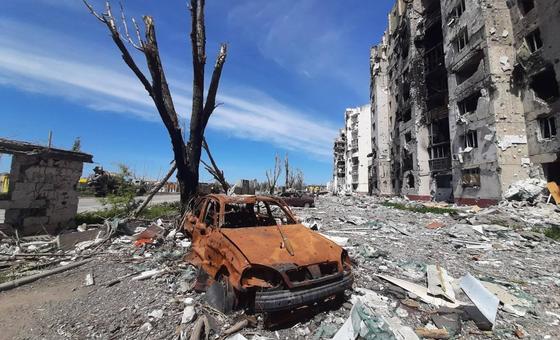
Briefing reportedly at the request of Russia on “supplies of lethal weapons to Ukraine and their consequences”, Izumi Nakamitsu reminded ambassadors that she had already addressed the issue in September.
Risk of diversion
The UN Disarmament Affairs (UNODA) chief repeated what she had said then, that a large-scale influx of weapons into any battle-zone, “raises many concerns for peace and security” which includes “risks of diversion as well as potential spillover and escalation.”
She said it was a matter of public record that States were transferring weapons systems and ammunition to Ukraine for use by its defence forces against Russian attacks.
Ms. Nakamitsu added that there had also been “widespread and independently verified reports of the transfer of major conventional weapons systems to non-State groups involved in the conflict against Ukraine, including artillery rocket systems.”
Arms control
She said what happens to weapons systems in the period after the guns fall silent, was also a major issue, crucial to any successful, lasting peace deal.
“Measures to counter the potential diversion of weapons and ammunition, will be key to post-conflict recovery and regional security and stability, as to conflict potential in other regions.”
Transparency and accountability
Equally important, she said, was the need to safeguard and account for all military equipment transferred. She pointed to the UN Register of Conventional Arms as a key tool, alongside the Arms Trade Treaty.
She said all Member States should follow these policy approaches and use the tools already available, for transparency’s sake, so that weapons don’t disappear onto the black market.
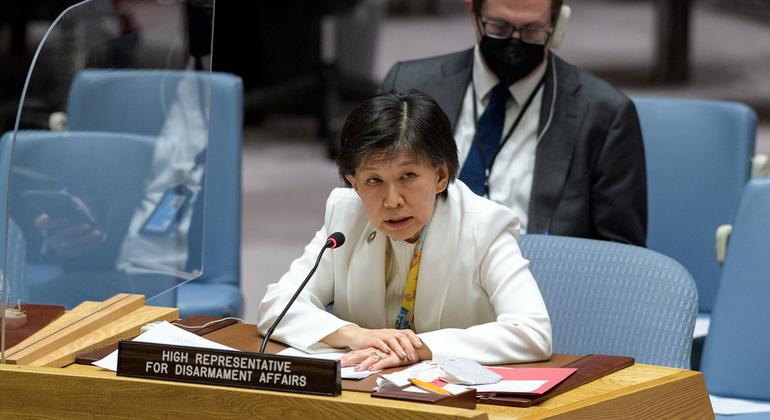
UN Photo/Manuel Elías
Civilian suffering
Beyond the facts and figures, she urged all combatants in Ukraine and everywhere else, to realize their duty to protect civilians from weapons of war.
Already, more than 17,000 Ukrainians had died or been injured, “with the numbers incessantly rising”, she said, most of them killed by explosive weapons.
Russia’s attacks on a wide range of civilian infrastructure, including the energy grid as the deadly cold winter sets in, brings “a new dimension to the humanitarian crisis, putting millions at risk.”
International humanitarian law is clear she said: “combatants must not direct attacks against civilians or civilian infrastructure and must take all feasible precautions in the conduct of military operations to avoid, or at least minimize, incidental loss of life, injury to civilians, and damage to civilian objects.”
Devastation in towns and cities
Citing last month’s adoption of the Political Declaration on Strengthening the Protection of Civilians from the Humanitarian Consequences Arising from the Use of Explosive Weapons in Populated Areas, signed by over 80 States, the UNODA chief said it was a “milestone in our efforts to better protect civilians”, calling on all countries to join.
“The past nine months have seen tremendous devastation – much as a result of the use of heavy conventional weapons. Attacks against civilians and civilian infrastructure must stop.”
Stop the diversion of arms
Finally, she called on States to apply effective arms control measures to address risks related to arms disappearing, only to resurface elsewhere.
Preventing the diversion to other battlefields is essential, she stressed, “to avoid fuelling conflict and insecurity in the region and beyond.”